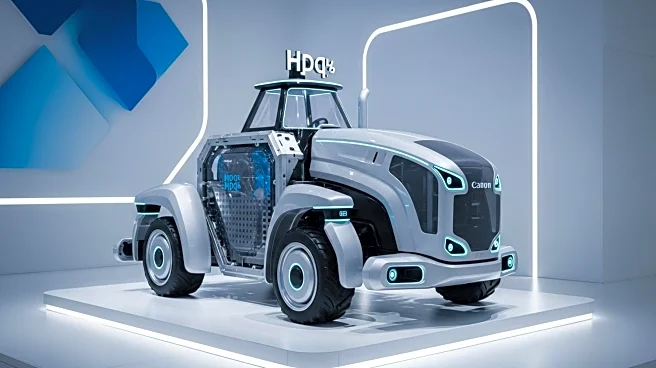What's Happening?
Kubota has introduced a groundbreaking autonomous hydrogen-powered tractor at the Hydrogen Energy Park exhibition during Expo 2025 Osaka. This prototype is the first of its kind, featuring a solid-polymer fuel cell that converts compressed hydrogen into electricity, producing only water vapor and heat as byproducts. The tractor delivers power equivalent to a 100-horsepower diesel engine and can operate for up to 12 hours on a single refill, which takes only minutes. The autonomous capabilities are enabled by cameras, sensors, and AI-driven navigation, allowing the tractor to perform tasks such as tillage and cultivation without an operator. This innovation is part of Kubota's strategy to address labor shortages and decarbonization in agriculture.
Why It's Important?
The introduction of this hydrogen-powered tractor represents a significant advancement in sustainable agriculture technology. By utilizing hydrogen fuel cells, which have a higher energy density than batteries, the tractor is well-suited for long hours of operation in the field, addressing both environmental concerns and efficiency. This development could lead to a reduction in carbon emissions in the agricultural sector, aligning with global efforts to combat climate change. Additionally, the autonomous features could alleviate labor shortages, a persistent issue in agriculture, by reducing the need for human operators.
What's Next?
Kubota plans to conduct demonstration tests on Japanese farms to evaluate the tractor's autonomous navigation, hydrogen supply logistics, and overall suitability for commercial farming operations. The success of these tests could pave the way for broader adoption of hydrogen-powered machinery in agriculture, potentially influencing other manufacturers to explore similar technologies. The integration of autonomous features into existing machinery could also expand, further transforming agricultural practices.









